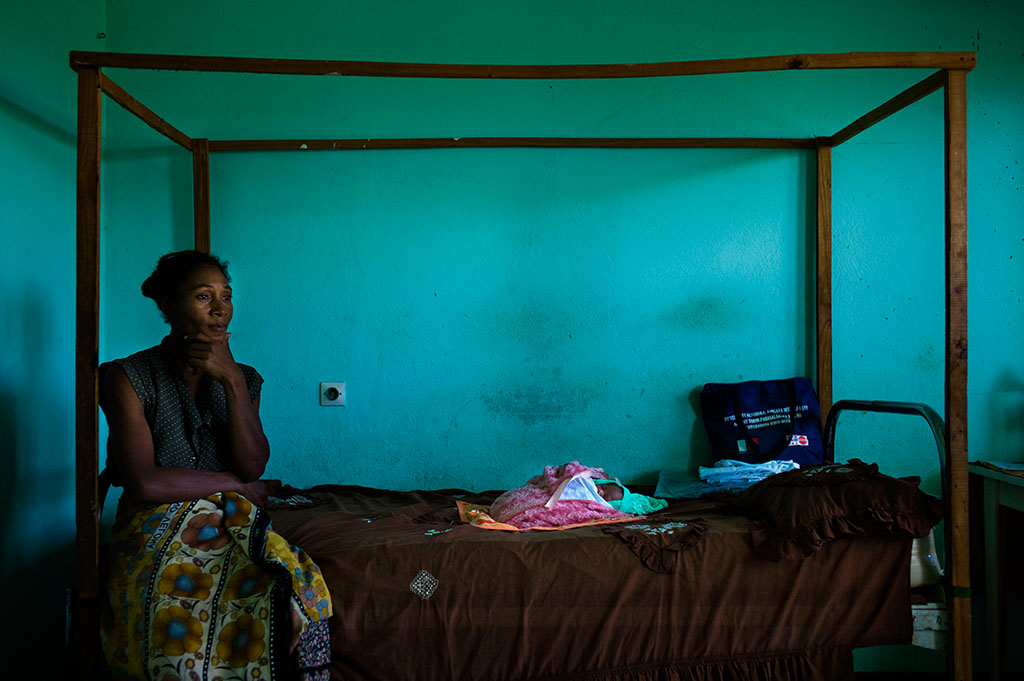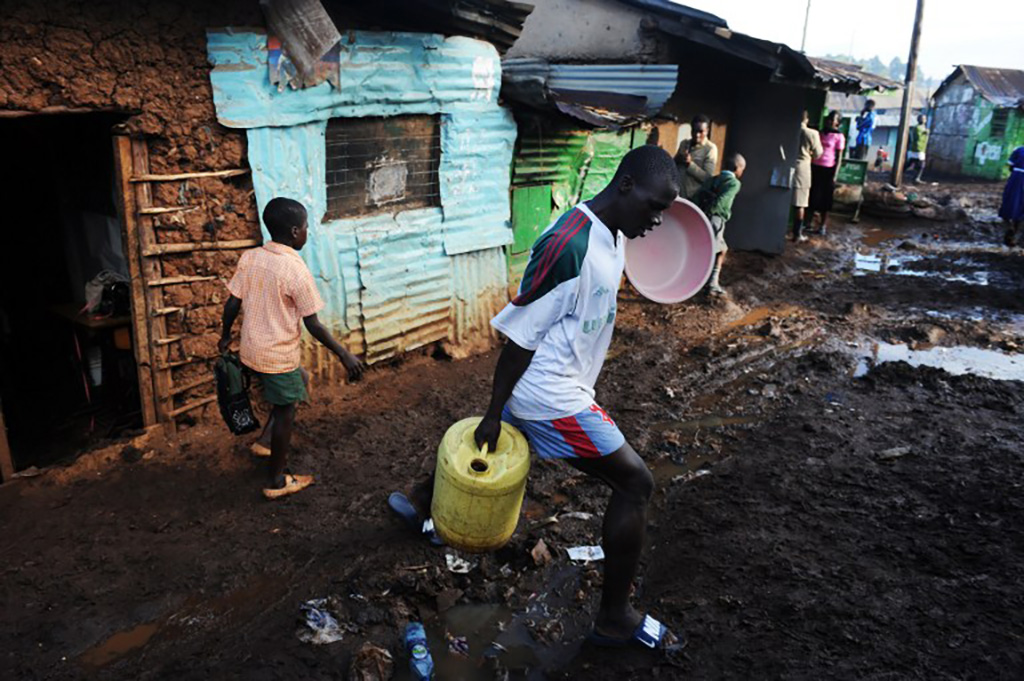Switzerland knows how to do good!
Although Switzerland has substantially increased its development aid budget and pursues good development cooperation with poor countries, it does not earn top marks for its contribution to the Millennium Development Goals (MDGs)External link.
Swiss finance and trade policy is driven by self-interest and contributes to restricting the policy space of poor countries.
As a donor country Switzerland is bound by the eighth MDG [develop a global partnership for development]:External link it should support developing countries in realizing MDGs 1-7, and adapt its trade, financial and tax policies to the needs of the developing countries. Yet its efforts towards a coherent, pro-development policy have remained rather modest.
Switzerland has made some headway regarding the import of goods from the poorest countries and arranged to block unlawful assetsExternal link from several states, to be returned as soon as possible. The aim nevertheless should be to prevent any more stolen assets from entering Switzerland. The urgently needed tightening in anti-money laundering and the exclusion of dictators’ funds is still pending.
The last fifteen years brought little or no movement on policy coherence for development. In concert with other western countries, Switzerland continues to defend its own economic interests, against the needs of the majority of the world’s population in developing countries.
At the start of the millennium, the government was extremely unwilling to increase Official Development Assistance (ODA) External linkto 0.7% of Gross National Income (GNI) in keeping with United Nations guidelines. In 2007 an alliance of over 70 aid agencies, environmental and youth associations, trade unions, human rights and women’s organizations launched a petition for ODA to be increased from the then 0.37% to 0.7% of GNI by 2015. After much bouncing back and forth between the Parliament and Government, in 2012 the increase to 0.5% was finally adopted in the debate on the global credit lines for 2013-16, by a substantial two-thirds majority in both chambers.
Up to 2015 the development budget will grow by about 9% annually. But it remains unclear how the money will be spent. The first increase of 2010-12 was entirely used to finance contributions to the fast-start financing package, which had been agreed at the Copenhagen Climate Conference. And according to the latest news, no new credit line will been opened to finance the Swiss contribution to the long-term climate financing of $100 billion by 2020, on which UN member countries agreed at the Cancun Climate Conference. Even though these contributions should be new and additional, Switzerland wants to pay them out of ODA.
Little adaption of Swiss development programmes
The MDG wording was useful to head off greater exploitation of ODA. But content-wise MDGs only marginally influenced the orientation of Switzerland’s development programmes. According to an external evaluation, the MDGs did not ‘lead to significant changes in programme areas, strategies or project content. The link between MDG and SDC [Swiss Agency for Development and Cooperation]External link projects has mostly been drawn in the aftermath and used to justify accountability and resource mobilization or the selection of focus countries and sectoral programmes.
Interestingly, the external evaluation gives the SDC good marks precisely for the fact that it has not given up its engagement in the areas of governance External linkand peacebuilding External linkin favour of the MDGs. ‘In a country like Nepal, characterized by armed conflicts, staying engaged meant focusing on non-MDG sectors (peacebuilding, rural infrastructure, and natural resource management)’, the report went on. In Benin or Nicaragua, in contrast, where Switzerland is implementing MDG programmes, success has been tarnished by the lack of ownership of the government. Their argument to accept the implementation of MDG programmes was linked to promised funding for urgently needed debt relief.
The MDGs urged donor countries to concentrate their aid to social programmes in poorer countries. Swiss development cooperation always had a strong humanitarian and poverty-reduction focus and unlike other countries, was never withdrawn from rural development.
Yet in real terms, only a quarter of Swiss development aid has been targeting low-income countries (LICs) for many years now. In 2008 the Swiss development agencies expanded their scope with ”Global ProgramsExternal link” which entail pro-development globalization activities in addition to poverty reduction. They cover for example the two thematic programs of climate change, and finance and trade, which are being implemented in emerging countries like China, India and Brazil. As Switzerland lacks a specific budget for entering into “strategic partnerships” with these countries, there is reason to fear that ODA might be diverted towards foreign policy ends.
No progress in trade and financial policy
Switzerland’s free trade policy hardly differs from that of the EU and the US and is highly prejudicial to developing countries. Once it became clear that Switzerland would not be able to push through its maximum demands (full liberalization of investments, free access to government procurement and the services sector) against the majority of developing countries in the World Trade Organization (WTO)External link, it opted for bilateral free trade agreements. The consequences are far-reaching. Developing countries are being pressured, far beyond the stipulations of the WTO agreements, into radical market opening, the elimination of protective regulations and customs duties, and robust protection of intellectual property. Whilst the Swiss export sector benefits from the removal of trade barriers and access to the markets of partner countries, developing countries are losing considerable policy space to strengthen their domestic economies.
In patent protection, the government firmly represents the interests of Swiss chemical and pharmaceuticals industry. Apart from very few humanitarian supplies of medicines, Switzerland’s patent protection policy continues to prevent access to medicines and to limit small farmers’ use of seeds.
Also, owing to advantageous investment and fiscal conditions, Switzerland has become a major centre for commodity companies over the past ten years and is today home to the largest number of multinational enterprises per capita. Firms headquartered in Switzerland such as Glencore, Xstrata or Trafigura make headlines for human rights violations and environmental pollution, thereby jeopardizing Switzerland’s reputation. So far, the parliament and the cabinet prefer voluntary rules for the commodity industry, and even the OECD guidelines for multinational enterprises are only being implemented half-heartedly in Switzerland.
Some movement on taxes
At the 2010 MDG Summit, Switzerland opposed all initiatives relating to financial transparency and international cooperation on tax matters. Whilst Switzerland seems willing to cooperate with the industrialized and the emerging-markets, it has not yet concluded any agreements with low-income countries providing for any effective exchange of information about possible tax-dodgers. Yet this kind of information exchange is indispensable to poor countries if they are to stop illicit financial outflows and generate more funds of their own for poverty reduction. Conservative estimates put the amount of untaxed funds from developing countries in Swiss banks at $400 billion. The real amount is more likely to be around $1,000 billion. If only the interest on these amounts were taxed, the countries concerned would have an additional $6 billion at their disposal each year for poverty reduction. This represents more than twice Switzerland’s development aid budget.
Opinion series
swissinfo.ch publishes op-ed articles by contributors writing on a wide range of topics – Swiss issues or those that impact Switzerland. Over time, the selection of articles will present a diversity of opinions designed to enrich the debate on the issues discussed.

In compliance with the JTI standards
More: SWI swissinfo.ch certified by the Journalism Trust Initiative













You can find an overview of ongoing debates with our journalists here . Please join us!
If you want to start a conversation about a topic raised in this article or want to report factual errors, email us at english@swissinfo.ch.